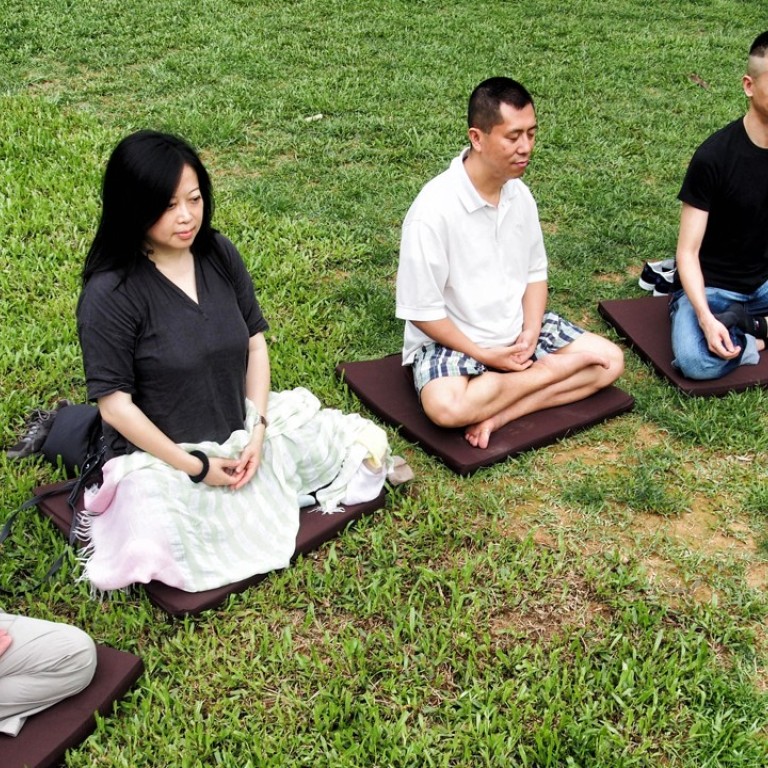
Stressed Hong Kong workers can find mental well-being with web-based behavioural training
Winnie Mak draws the attention of Hong Kong’s policymakers to a Chinese University study that shows how web-based mindfulness programmes can offer a psychological boost and fill the gaps in mental health promotion
Life in Hong Kong can be stressful. Mental and physical ailments, from ulcers and allergies to insomnia, are common. More worryingly, cases of depression, as well as anxiety, bipolar or obsessive compulsive disorders, and schizophrenia, also appear to be increasing. A 2014 survey of Hong Kong workers found a quarter had felt depressed or hopeless in the previous month.
The need for support cannot be overstated. The Hong Kong Mental Morbidity Survey, a three-year study launched in 2010, found fewer than a quarter of people with common mental disorders had sought medical support in the previous year, and only 3.9 per cent had seen a psychologist for help.
Many suffer in silence because of a lack of awareness or because of social taboos
Mental health disorders are highly treatable, yet many suffer in silence because of a general lack of awareness or because of social taboos. And those who do ask for help sometimes endure long waits for treatment due to a chronic shortage of trained psychologists.
There is, however, an alternative to face-to-face therapy. A psychology research team from the Chinese University of Hong Kong recently studied internet-based treatment methods using cognitive behavioural therapy and mindfulness techniques. Cognitive behavioural therapy aims to help people become aware of negative thoughts and behavioural patterns, and to change distorted thinking.
It’s time to talk openly with Hong Kong’s youth about suicide and stress
Mindfulness practices, adapted from Buddhist contemplative traditions, help people to become aware in the present moment. Both techniques have been shown to be effective in easing mental suffering. Online versions of mindfulness-based training are available, but such internet-based interventions are relatively untested in Asia.

Participants were asked to undertake eight weeks of online mindfulness and cognitive behavioural therapy training programmes, with a follow-up survey after three months.
The study concludes that web-based mindfulness and behavioural therapy training programmes are both equally effective in improving mental well-being, life satisfaction and energy levels, and counteracting psychological distress, sleep disturbance and pain.
The policy implications are clear. Internet-based interventions are easily accessible and affordable, offering good potential for integration into the public health system. They can fill the gaps in mental health promotion, prevention of common mental disorders, and early treatment.
Winnie Mak is a professor at the Department of Psychology at the Chinese University of Hong Kong

